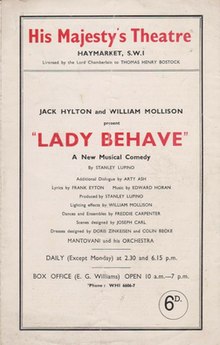
Harold Clifford Keel, professionally Howard Keel, was an American actor and singer known for his rich bass-baritone singing voice. He starred in a number of MGM musicals in the 1950s and in the television series Dallas from 1981 to 1991.

Adolph Green was an American lyricist and playwright who, with long-time collaborator Betty Comden, penned the screenplays and songs for musicals on Broadway and in Hollywood. Although they were not a romantic couple, they shared a unique comic genius and sophisticated wit that enabled them to forge a six-decade-long partnership. They received numerous accolades including four Tony Awards and nominations for two Academy Awards and a Grammy Award. Green was inducted into the Songwriters Hall of Fame in 1980 and American Theatre Hall of Fame in 1981. Comden and Green received the Kennedy Center Honor in 1991.

Annie Get Your Gun is a musical with lyrics and music by Irving Berlin and a book by Dorothy Fields and her brother Herbert Fields. The story is a fictionalized version of the life of Annie Oakley (1860–1926), a sharpshooter who starred in Buffalo Bill's Wild West, and her romance with sharpshooter Frank E. Butler (1847–1926).

Ida Lupino was a British actress, director, writer, and producer. Throughout her 48-year career, she appeared in 59 films and directed eight, working primarily in the United States, where she became a citizen in 1948. She is widely regarded as the most prominent female filmmaker working in the 1950s during the Hollywood studio system. With her independent production company, she co-wrote and co-produced several social-message films and became the first woman to direct a film noir, The Hitch-Hiker, in 1953.

Me and My Girl is a musical with music by Noel Gay and its original book and lyrics by Douglas Furber and L. Arthur Rose. The story, set in the late 1930s, tells of an unapologetically unrefined Cockney gentleman named Bill Snibson, who learns that he is the 14th heir to the Earl of Hareford. The action is set in Hampshire, and in Mayfair and Lambeth in London.

Louis Charles Hayward was a South African-born, British-American actor.

Constance Vera Browne, Baroness Oranmore and Browne, commonly known as Sally Gray, was an English film actress of the 1930s and 1940s. Her obituary in The Irish Times described her as "once seen as a British rival to Ginger Rogers."

Howard Green Duff was an American actor.

Sally Forrest was an American film, stage and TV actress of the 1940s and 1950s. She studied dance from a young age and shortly out of high school was signed to a contract by Metro-Goldwyn-Mayer.

Henry William George Lupino professionally Lupino Lane, was an English actor and theatre manager, and a member of the famous Lupino family, which eventually included his niece, the screenwriter/director/actress Ida Lupino. Lane started out as a child performer, known as 'Little Nipper', and went on to appear in a wide range of theatrical, music hall and film performances. Increasingly celebrated for his silent comedy short subjects, he is best known in the United Kingdom for playing Bill Snibson in the play and film Me and My Girl, which popularized the song and dance routine "The Lambeth Walk".
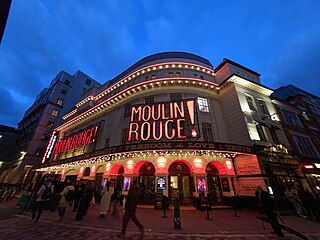
The Piccadilly Theatre is a West End theatre located at the junction of Denman Street and Sherwood Street, near Piccadilly Circus, in the City of Westminster, London. It opened in 1928.

The Britannia Theatre (1841–1900) was located at 115/117 High Street, Hoxton, London. The theatre was badly damaged by a fire in 1900, forcing the sale of the lease. The site was reused as a Gaumont cinema from 1913 to 1940, before being demolished to make room for a more modern cinema which was never built. Housing has now been built on the site, which is marked by a London Borough of Hackney historic plaque.

Marjorie Browne, Lady Reeve (1910–1990) was a British musical theatre actress who made occasional films.

Ladies in Retirement is a 1941 American film noir directed by Charles Vidor and starring Ida Lupino, Louis Hayward and Evelyn Keyes. It was produced and distributed by Columbia Pictures. Lupino and Hayward were married at the time. It is based on a 1940 Broadway play of the same title by Reginald Denham and Edward Percy that starred Flora Robson in the lead role.
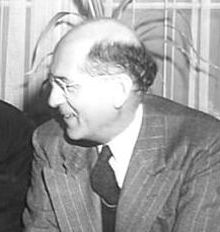
Albert E. Lewis was a Polish-born Broadway and film producer. His family emigrated to the Lower East Side of Manhattan, New York when he was a boy. He became a vaudeville comedian, then started a partnership producing one-act plays for vaudeville. Around 1930 he moved to Hollywood and worked as a film producer with Paramount, RKO, and MGM until after World War II.
Over She Goes is a 1937 British musical comedy film directed by Graham Cutts and starring Stanley Lupino, Claire Luce, Laddie Cliff, Gina Malo and Max Baer. It was based on a successful London stage play by Lupino, with music by Billy Mayerl.
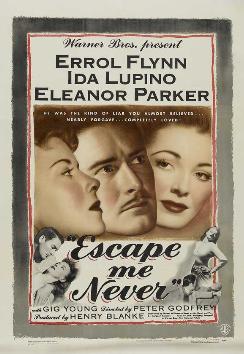
Escape Me Never is a 1947 American melodrama film directed by Peter Godfrey, and starring Errol Flynn, Ida Lupino, Eleanor Parker, and Gig Young.
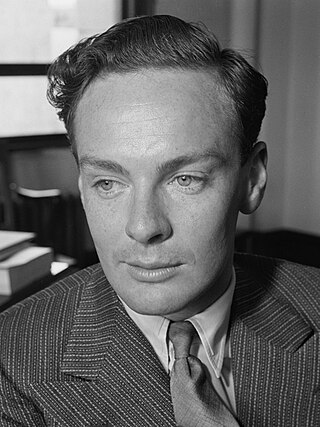
John Wood was an Australian who acted on the stage and briefly became a film star in Hollywood and Britain in the late 1930s.
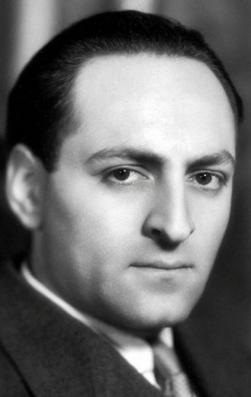
Marion Gering was a Russian-born American stage producer and director. He moved to the United States in 1923 as an artist. He became involved in the theatrical community in Chicago, founding the Chicago Play Producing Company.

Charles Childerstone was an English operatic tenor and actor who after a career on the stage including a period with the D'Oyly Carte Opera Company from 1896 to 1903 later had a career on the music halls and in film. His theatrical career spanned four decades and included musical comedy and the legitimate theatre.
